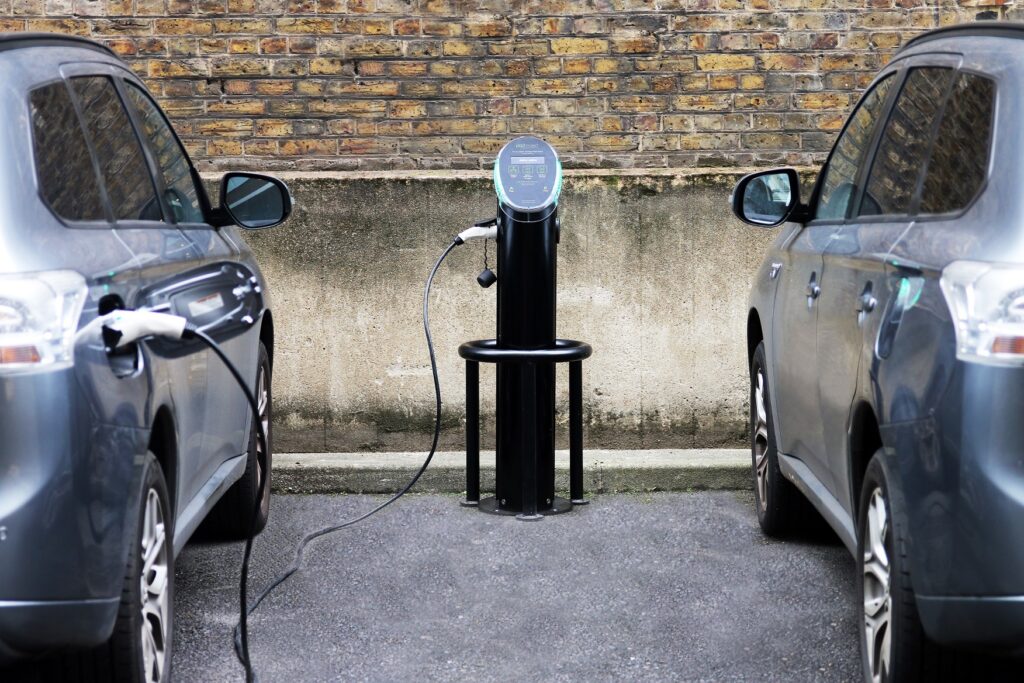Pod Point pens Fuller’s supply deal
Pub chain Fuller’s has signed a three-year supply deal with Pod Point that will see 7kW electric vehicle (EV) charge points installed at ten locations initially before rolling out to other locations in the future.
The company owns almost 400 managed and tenanted pubs and hotels and already has EV chargers at three locations, with two of these being 3kW chargers. The new installs will be completed at pubs in London and the south east and will be free to use for staff and customers.
Jonathon Swaine, managing director of Fuller’s Inns, said: “We’re always looking to give our customers more reasons to visit or pubs, and free charging will be a popular incentive for the growing community of EV drivers.
“We’ll seek to build on these initial installs and roll out to more pubs as the number of EV drivers continues to rise.”
Pod Point chief executive and founder Erik Fairbairn added: “EV charging should be something drivers don’t have to think about and having charge points available in locations where people typically spend an hour or more is hugely important in supporting the UK’s transition to EVs.”
Fuller’s will also carry out a trial to monitor the average daily mileage of its fleet to identify which parts of its fleet can be electrified.
Chargemaster poised to deliver thousands of charge points for AA locations
A strategic partnership signed between Chargemaster and AA could see thousands of EV chargers installed at hotels and B&Bs across the UK.
Around 4,000 AA-listed establishments will be offered EV charging points free of charge, which if taken up will be integrated into Chargemaster’s POLAR network. The company will work with any establishments interested in EV charging to determine the best charging points for their location.
David Martell, Chief Executive of Chargemaster, said: “We believe that within the next five years, all hotels will offer EV charging, just like they provide Wi-Fi today. Our offer for AA hotels is a great opportunity for hotel owners and operators to get a competitive advantage with a facility that could attract hundreds of thousands of customers in the coming years.”
The first location to take up the offer is Sandford Springs Hotel in Kingsclere, Hampshire, which is now offering EV charging via a 50kW charger.
Edmund King OBE, president of the AA, said: “We know that when EV drivers are looking for hotels, they will actively seek out those with charging points. We have witnessed enormous changes in both the automotive and hotel sectors over the last 110 years, and we are delighted that our AA recognised hospitality businesses can benefit from this tremendous offer.”
Bristol sets out to deliver a new network for West of England
Bristol City Council is to deploy 120 EV chargers across the west of England using a grant of £2 million from the Office of Low Emission Vehicles (OLEV) through the Go Ultra Low West project.
The city won £7 million in funding in January 2016 as part of a £40 million initiative to increase charging infrastructure across the UK and drive EV take-up.
The first set of ‘pilot’ charge points have already been installed for use by car club vehicles and will be ready for use later this year. Public charge points will also be installed in 2018 at various locations across Bristol, with more to follow over the next three years.
Councillor Kye Dudd, cabinet member for energy, waste and regulatory services, said: “These are good forward steps on our journey to becoming a carbon neutral city by 2050 and a big boost for those in Bristol wanting to adopt electric vehicles.
“Across the city in both business and private use, we’re seeing a rise in electric vehicle take up so we will continue to look at ways in which we can support this growing trend.”
The council will also increase the use of EVs within its own fleet, having already adopted seven electric vans and six cars to be used around the city. It aims to have at last 10% of its fleet electric by 2021.
“As a council, we have a responsibility to lead by example and despite reducing our carbon emissions by 60% three years early; we’re already looking at ways to meet our new targets ahead of time,” Dudd added.





